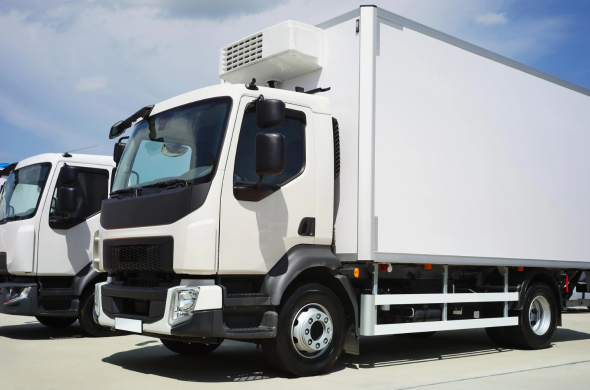Artificial intelligence (AI) is one of the fastest-growing technologies available today, and with good reason. It offers opportunities to reduce costs, improve accuracy, and vastly speed up tasks. In agribusiness, AI is taking on new opportunities to transform the way farms grow, support the environment, and improve profit margins.
AI plays a significant role in eliminating the global food crisis, aiding in boosting nutrient quality in crops, and protecting the soil quality for generations to come. It sounds like quite a bit, but the reality is it is very transformative. AI could reduce pesticide use across the globe by about 60% while also cutting water usage in half.
By 2050, the world’s population will reach 10 Bln, making innovations like artificial intelligence in modern agriculture critical to food security. Agribusiness consulting firms are now working to deploy more AI-based solutions to facilitate industry-wide change. What could it mean to your business?
AI-Driven Precision Agriculture
Precision agriculture, the premise of applying robotics and technology to the growth of crops, is further enhanced with the use of AI. By combining cloud computing, smart sensors, and AI, farming strategies become more effective and efficient.
Precision agriculture enables optimization of the environment to support the best possible growth for crops, boosting yields and potentially protecting arable land. AI with machine learning (ML) creates an opportunity to capture data, monitor for patterns, and apply solutions in real-time to support crop growth.
AI in Crop Management and Yield Prediction
AI-powered crop management could improve yields by as much as 20%. This is possible because it enables more precise monitoring and oversight of crops, enabling farmers to make changes faster and more accurately to meet crop needs.
Not only does crop yield improve, but the cost of growing those crops also improves. There is less need to use fertilizers or water, reducing waste. AI crop management strategies, such as the use of real-time crop monitoring systems, help to take the risk out of crop yield predictions. This AI-powered crop yield prediction system uses SVMs, neural networks, and random forests to help make better crop management decisions. Weather, soil, and crop management practices are enhanced as a direct result.
Supply Chain Optimization with AI
AI is also potentially transformative within the agriculture supply chain. Though it is just advancing into this area, AI can shift profit-limited crop supplies, improve sustainability, and offer better decision-making to companies.
Within the supply chain, AI aids in decision-making, including offering the opportunity to use yield mapping and predictive analytics to better plan for true supply. Drones can support this by providing detailed and accurate predictions of future yields based on very specific locations.
In other portions of the supply chain, AI creates better predictive analysis for demand forecasting as well as logistic real-time decision-making opportunities. It affords better inventory management with fewer errors. AI impacts the entire agricultural supply chain, increasing efficiency, decision-making, and data-driven practices.
AI in Farm Equipment and Automation
No sector of modern agriculture is untouched by the opportunities AI offers for smart farming equipment. Utilizing AI technology, along with robotics, computer vision, and machine learning, farmers can reduce farm equipment costs while also reducing labor demands.
Next-generation solutions include autonomous tractors and smart greenhouses that not only do the work for the farmer but also provide intense data, enabling better decision-making throughout the greenhouse and fields. Autonomous tractors offer solutions like auto-steering and navigational methods. Meanwhile, agriculture robots can automate repetitive tasks that are both labor-intensive and dangerous to people. Some of the most fascinating and transformative types of AI-based farm equipment already in place include:
- Aerial crop surveillance drones
- Livestock health monitoring
- AI-powered greenhouse
- Autonomous tractors
- Autonomous specialized equipment
Consider solutions such as a strawberry-picking autonomous robot that not only picks but also senses ripeness to ensure the fruit is only picked at the optimal stage.
Data-Driven Decision Making
A core component of AI in modern agriculture is its ability to provide farmers with valuable, real-time data to enable faster and more accurate decision-making. Using sensors, data is always available. Systems can send alerts to farmers or automatically adjust climate control elements, such as watering, to improve outcomes.
By applying these AI-specific technologies, it’s possible for organizations to better enhance outcomes, predict crop yield more accurately, use resources more judiciously, and improve bottom-line profits.
Sustainability and Environmental Impact
Yet another clear advantage of deploying AI technology into modern farming is its impact on the environment. Some tools can offer precision management so closely that they reduce the need for pesticides and fertilizers, therefore boosting production without added costs.
In some areas, where water tends to be one of the most expensive and environmentally challenging aspects of farming, AI solutions are helping to reduce water use by 25 to 50%, drastically reducing budgets in arid communities such as the Middle East.
Challenges and Considerations for AI in Modern Agriculture
The adoption of AI in modern farming is one of several challenges that are present. The cost of change is often difficult for farmers to overcome, making the investment in modern agriculture strategies somewhat risky. The key to this, though, is the use of consultancy services, which can help farmers pick and choose the most effective and least cost-prohibitive strategies for moving towards AI adoption. Consultancy services enable more enhanced and precise control over the deployment of AI, ensuring a better ROI.
The Future Outlook for AI in Modern Farming and Agriculture
Utilization of artificial intelligence in modern farming is not something that “could” happen. It is already playing out across the world. As startups continue to launch, offering highly precise and exceedingly accurate solutions for improving crop production, AI is certain to become the standard in the industry. For those within the agribusiness industry, it’s critical to stay informed about the future trends and innovations on the horizon with the expansion of AI.
Read our latest insights, ideas, and perspectives that explore the trends shaping the future of business and society. Our consultancy services go hand-in-hand with these insights, confirming our position as industry leaders. Get in touch to find out more about our consulting services and industry expertise.



